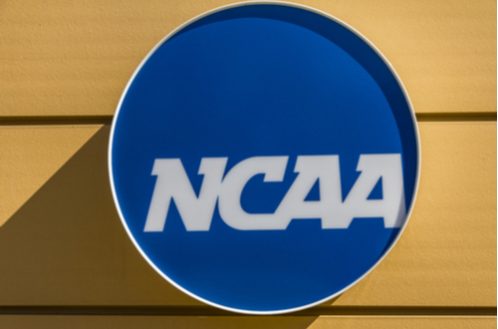NCAA Seeks Dismissal of Kansas 2008 Champions’ Lawsuit, Citing Statute of Limitations

The National Collegiate Athletic Association (NCAA) has requested the dismissal of a class-action lawsuit filed by Mario Chalmers and other members of the 2008 Kansas Jayhawks men’s basketball team, arguing that the plaintiffs’ claims are barred by the statute of limitations. The case revolves around alleged unpaid compensation for the players’ likenesses used in various commercial ventures, a legal matter that has gained prominence in recent years as former college athletes push for compensation under antitrust laws.
In a motion filed on October 18 in the US District Court for the Southern District of New York, the NCAA argued that the claims brought forth by Chalmers and his former teammates fall outside the allowable timeframe. According to the NCAA, the plaintiffs waited too long to pursue their antitrust claims, which are subject to a four-year statute of limitations. Since the proposed class action includes players whose likenesses were used up until 2016, the NCAA contends that the case should be dismissed as it has exceeded the permissible period by eight years.
Per Bloomberg, the NCAA emphasized that the legal time limit for bringing such claims expired long ago. The association further argued that the plaintiffs are attempting to rely on exceptions to the statute of limitations in order to push the case forward, but these exceptions do not apply in this instance. According to the motion, the NCAA believes the lawsuit lacks legal standing due to these timing issues.
Related: Attorney Challenges NCAA’s $2.78 Billion Settlement in Landmark Antitrust Cases
The suit, led by Chalmers, a key figure in the Kansas team’s 2008 NCAA Championship victory, accuses the NCAA of profiting off the players’ likenesses without providing them any compensation. This type of claim has become more frequent as the debate over athletes’ rights to their name, image, and likeness (NIL) continues to intensify. However, the NCAA maintains that the delay in filing the suit renders the claims invalid under existing antitrust laws.
As reported by Bloomberg, this case is part of a broader legal landscape where former college athletes are increasingly challenging the NCAA’s long-standing policies on amateurism. The NCAA’s latest motion could potentially set a precedent for similar cases if the court sides with the organization, reaffirming the importance of adhering to legal deadlines when filing such claims.
Source: Bloomberg
Featured News
Big Tech Braces for Potential Changes Under a Second Trump Presidency
Nov 6, 2024 by
CPI
Trump’s Potential Shift in US Antitrust Policy Raises Questions for Big Tech and Mergers
Nov 6, 2024 by
CPI
EU Set to Fine Apple in First Major Enforcement of Digital Markets Act
Nov 5, 2024 by
CPI
Six Indicted in Federal Bid-Rigging Schemes Involving Government IT Contracts
Nov 5, 2024 by
CPI
Ireland Secures First €3 Billion Apple Tax Payment, Boosting Exchequer Funds
Nov 5, 2024 by
CPI
Antitrust Mix by CPI
Antitrust Chronicle® – Remedies Revisited
Oct 30, 2024 by
CPI
Fixing the Fix: Updating Policy on Merger Remedies
Oct 30, 2024 by
CPI
Methodology Matters: The 2017 FTC Remedies Study
Oct 30, 2024 by
CPI
U.S. v. AT&T: Five Lessons for Vertical Merger Enforcement
Oct 30, 2024 by
CPI
The Search for Antitrust Remedies in Tech Leads Beyond Antitrust
Oct 30, 2024 by
CPI